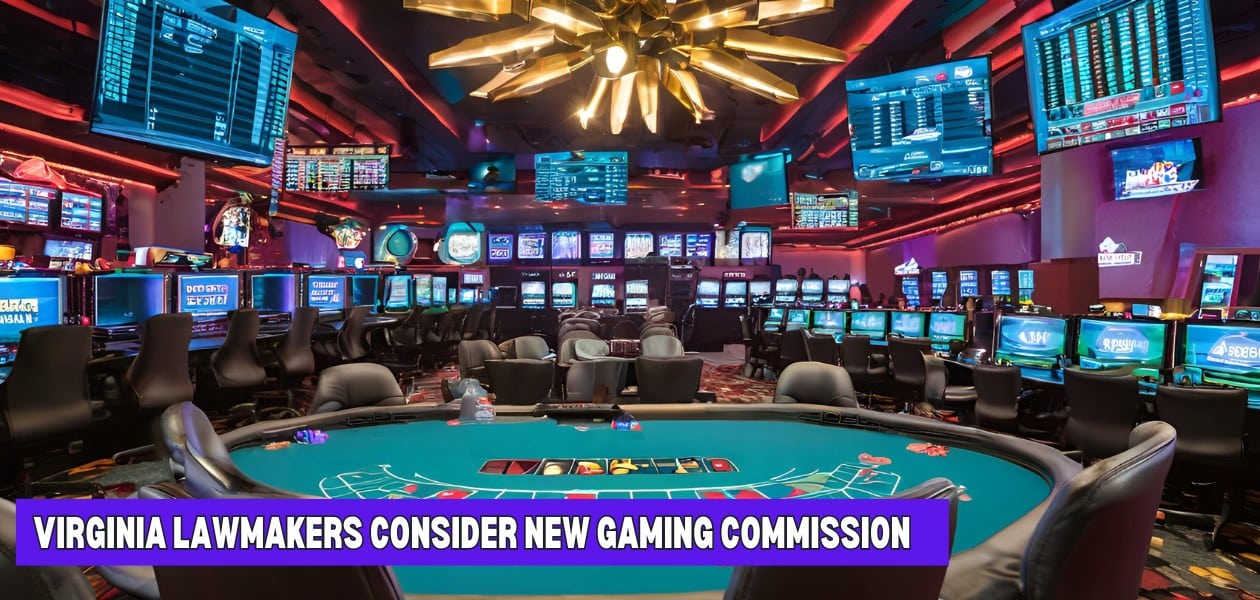Last updated: December 13, 2024

Virginia is reviewing the creation of a Virginia Gaming Commission to oversee expanded gambling, including casinos and online sports betting. The proposal has sparked opposition from Churchill Downs, who fear negative impacts on horse racing similar to those seen in Michigan. Recommendations are expected in January.
Virginia has undergone a process of gambling diversification over the recent past, with up to five resorts that have incorporated slot machines, live dealer’s tables, and sports betting. In addition, the state now has online sports gambling and slot-like historical horse racing (HHR) machines in parimutuel wagering outlets.
The Virginia Lottery regulates lottery gaming, casinos, and retail and mobile sports betting. At the same time, the Virginia Racing Commission oversees HHR gaming, horse racing, and parimutuel betting.
As the gaming scale has expanded throughout Virginia, a technical legislative body is currently studying the idea of a new entity—the Virginia Gaming Commission.
This proposed commission would regulate casino gambling, internet sports betting, HHR betting, and parimutuel facilities. If there were no Virginia Gaming Commission, the Virginia Lottery would only conduct lottery business.
The joint subcommittee will submit its recommendations to the General Assembly in January. The possibility of the Virginia Gaming Commission forming is a strong signal that changes in gambling legislation in Virginia are needed as the state is establishing itself as an important player in the evolution of the U.S. casino industry.
A gentle reminder to lawmakers: Meet with consultant Brianne Doura-Schawohl during today’s joint subcommittee of the Virginia General Assembly and ask her about putting money toward creating a Virginia Gaming Commission.
Currently, the head of her own company, Doura-Schawohl Consulting, LLC, Doura-Schawohl shared with the bipartisan panel that the creation of a concentrating gaming regulatory authority on the state level remains imperative to tend to the consumer and operators, and limiting the negative effect of the expanded gaming.
On this point, Doura-Schawohl insisted on Virginia’s obligation to dedicate part of its gaming tax to the research, prevention, treatment, and recovery of pathological gambling.
She argued that the most effective approach to mitigating risks and reducing harm is through a bifurcated model involving both the state health agency and a central gaming regulatory agency. The proposed regulatory body should be empowered to enforce stringent consumer protection measures as a condition of licensure.
Virginia, historically one of the most restrictive states in terms of gambling, is rapidly emerging as a significant player in the U.S. casino industry. This transformation is marked by the opening of several retail casino resorts across the state.
In January 2023, Rivers Casino Portsmouth became Virginia’s first permanent casino. Additional large-scale casino resorts are set to open soon in Danville and Bristol.
Caesars Entertainment is on track to open its $750 million integrated resort, Caesars, Virginia, in Danville by the end of the year. Similarly, Hard Rock International is preparing to unveil its $550 million Hard Rock Hotel & Casino Bristol this fall or winter.
Looking ahead, Petersburg voters will decide in November whether to greenlight a $1.4 billion mixed-use complex that includes an integrated resort casino. Meanwhile, the Pamunkey Indian Tribe is progressing with plans for a $500 million casino project in Norfolk.
As Virginia’s gaming industry continues to expand, the establishment of a dedicated regulatory body like the Virginia Gaming Commission could play a key role in shaping the future of gambling in the Commonwealth.
Churchill Downs, for instance, which operates within Virginia, is categorically opposed to a measure that seeks to bring parimutuel wagering under the purview of the proposed Virginia Gaming Commission.
The firm, which runs HHR machines in the state and is already planning The Rose Gaming Resort in Dumfries, a $460m project, said such a decision could lead to negative consequences in the horse racing sector.
Churchill Downs, operator of the Colonial Downs Racetrack in New Kent, among others, has said that other jurisdictions that have undergone similar changes have seen the support base for horsemen dwindle.
The company used the example of Michigan to illustrate the matter. The merger of the Racing Commission with the new Baby Michigan Gaming Control Board in 1997 badly affected the thoroughbred industry in Michigan.
In a presentation by Churchill Downs to a joint subcommittee of the Virginia General Assembly, the group learned that Michigan, which enjoyed over one thousand race meets and $9m in purses in 2003, saw all this disappear.
Michigan, for instance, was recording 375 foals of thoroughbreds in 2003; the number of foals in 2022, however, was at a paltry four. Michigan’s horse racing business came to a halt after the state’s last racetrack, Northville Downs, shut down earlier this year.
Due to the structure of parimutuel wagering, live horse racing, simulcast wagering, and advance deposit wagering, Churchill Downs strongly believes that regulation should remain within the Virginia Racing Commission. The company stated that, in its opinion, this structure has to be preserved to safeguard and perpetuate horse racing in Virginia.